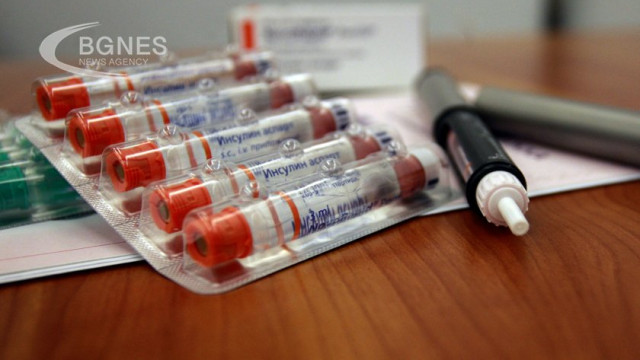November 14 is World Diabetes Day.
Diabetes is one of the world's major health challenges. Today, over 32 million people live with diabetes in the European Union. Worldwide, over 360 million people suffer from diabetes. In Bulgaria, according to statistics, about 500,000 people suffer from this disease. However, 40% of people do not know they have diabetes. There are two main types of diabetes mellitus - type 1 and type 2. In children, the first type (insulin-dependent) is more typical, and in adults, the second type of diabetes mainly develops.
Throughout the day of November 14, in Sofia and in the country, various health facilities will measure glycated hemoglobin for the prevention of diabetes. The campaign includes VMA, UMBAL "Alexandrovska", "Tokuda" hospital, "Lozenets" hospital and others.
The main risk factors for the development of diabetes mellitus are overweight, as well as the presence of first-degree relatives suffering from diabetes mellitus. Lifestyle is also of decisive importance - diet, reduced physical activity, stress in everyday life. The symptoms in which an endocrinologist must be visited are constant strong thirst, frequent urination, weight loss, strong feeling of hunger, frequent infections in the mouth , the urinary tract and on the skin, unexplained general weakness, sudden weight loss, etc. However, the majority of people with type 2 diabetes have no symptoms of the disease and it is discovered incidentally during tests on another occasion. The consequences and complications of diabetes can be very severe and costly both for the individual and for society as a whole. The main problem is the developing late complications of the disease, which can lead to blindness, chronic kidney failure and hemodialysis, limb amputations, vascular complications - ischemic heart disease, myocardial infarction, cerebrovascular disease, stroke.
It is important to know that regular self-monitoring reduces diabetes complications by 35%. It is particularly important to carry out preventive examinations by an endocrinologist, and for patients with a diagnosed disease, periodic examinations by a specialist endocrinologist are imperative at least once every 6 months and even more often. It is important to regularly measure the level of blood sugar - with a glucometer or in a laboratory. In addition, a study of the level of lipids is also necessary. The treatment of the disease is complex and includes the control of the blood sugar level as well as the other accompanying diabetes risk factors – arterial hypertension, dyslipidemia, obesity. Both Type 1 and Type 2 diabetes require a specialist to establish a nutritional regimen specifying the quality, quantity and content of carbohydrates and fats. A daily motor regimen is also prescribed.
The International Diabetes Federation recommends at least 30 minutes of moderate physical activity - brisk walking, swimming, cycling, dancing - most days of the week. Regular walking for at least 30 minutes a day reduces the risk of diabetes by 35-40%. Research strongly suggests that a change in lifestyle reduces the risk of diabetes by 58%. /BGNES







